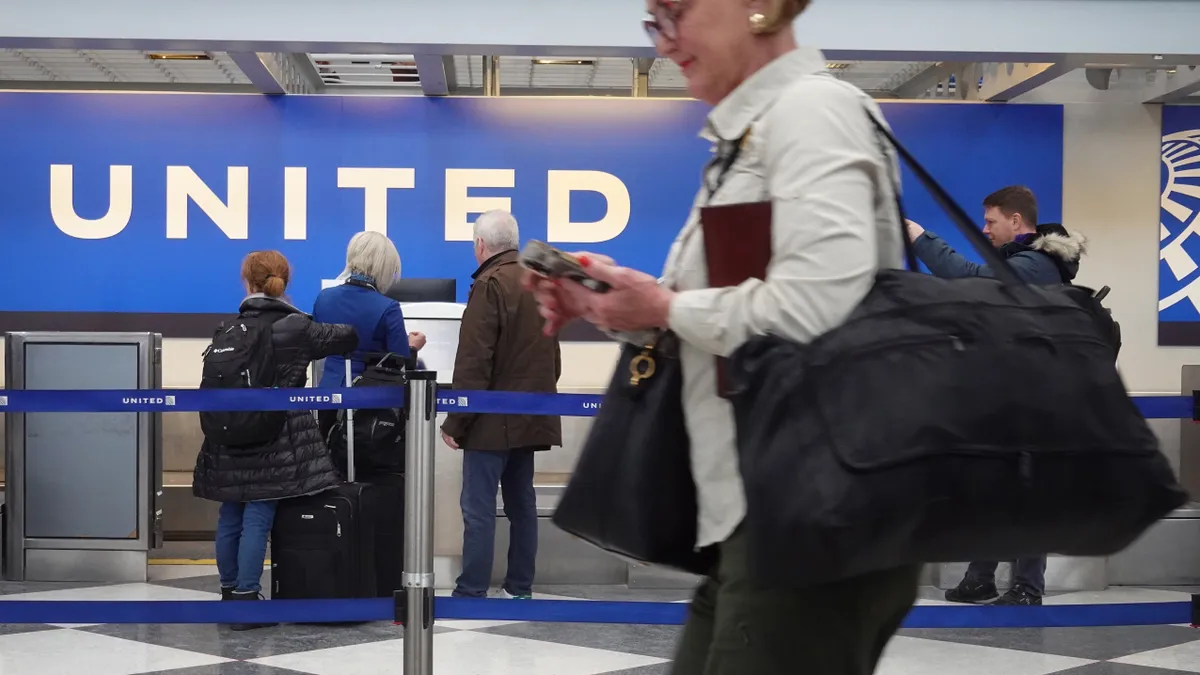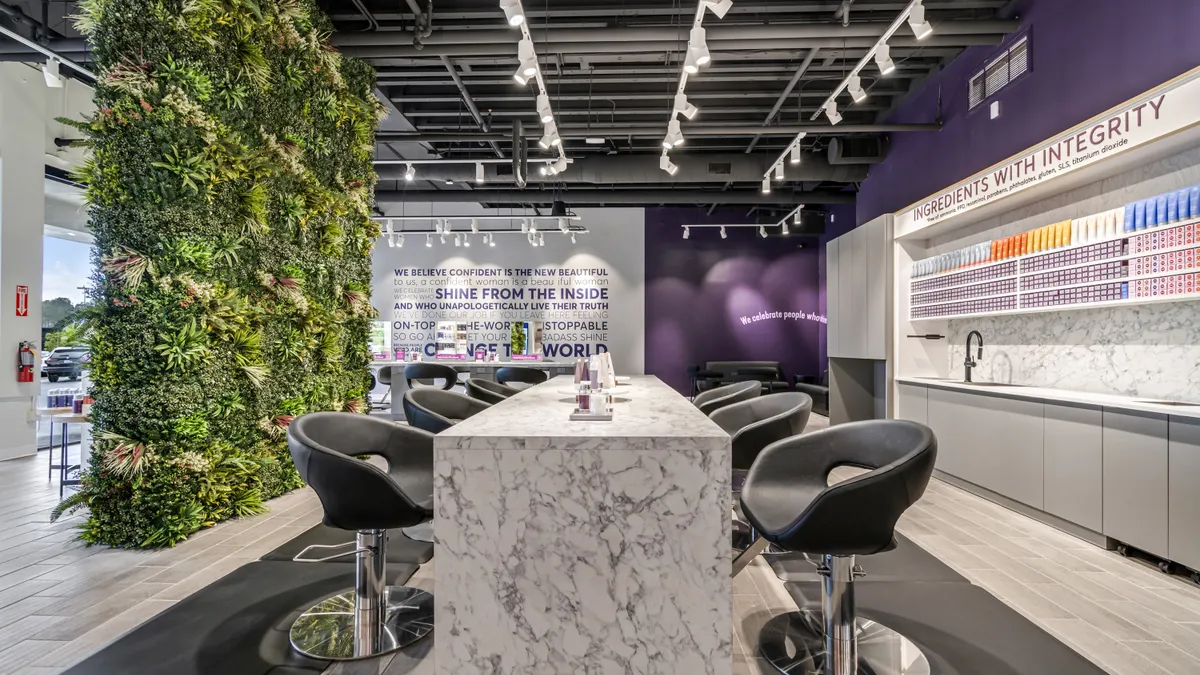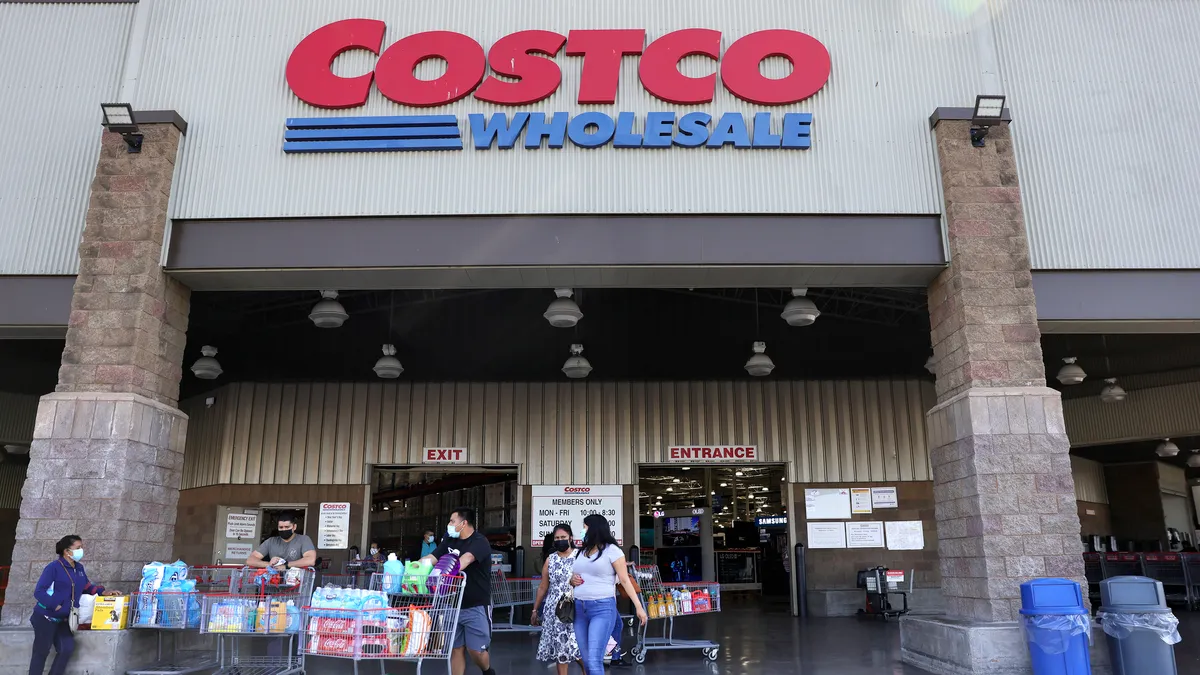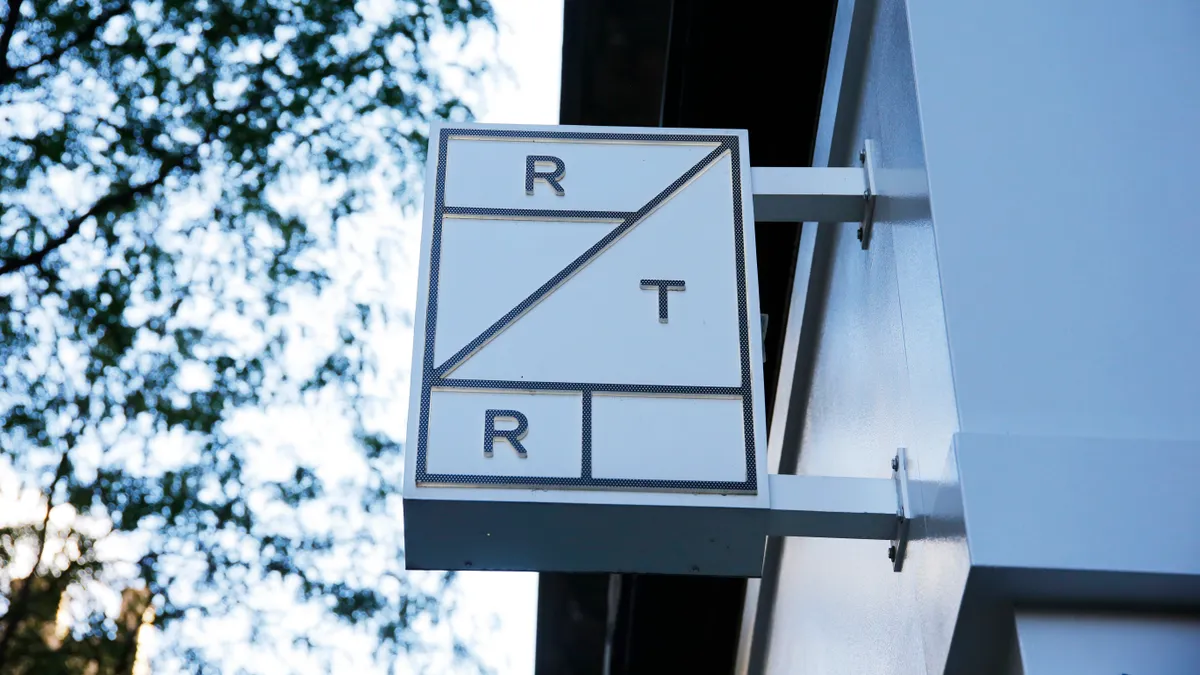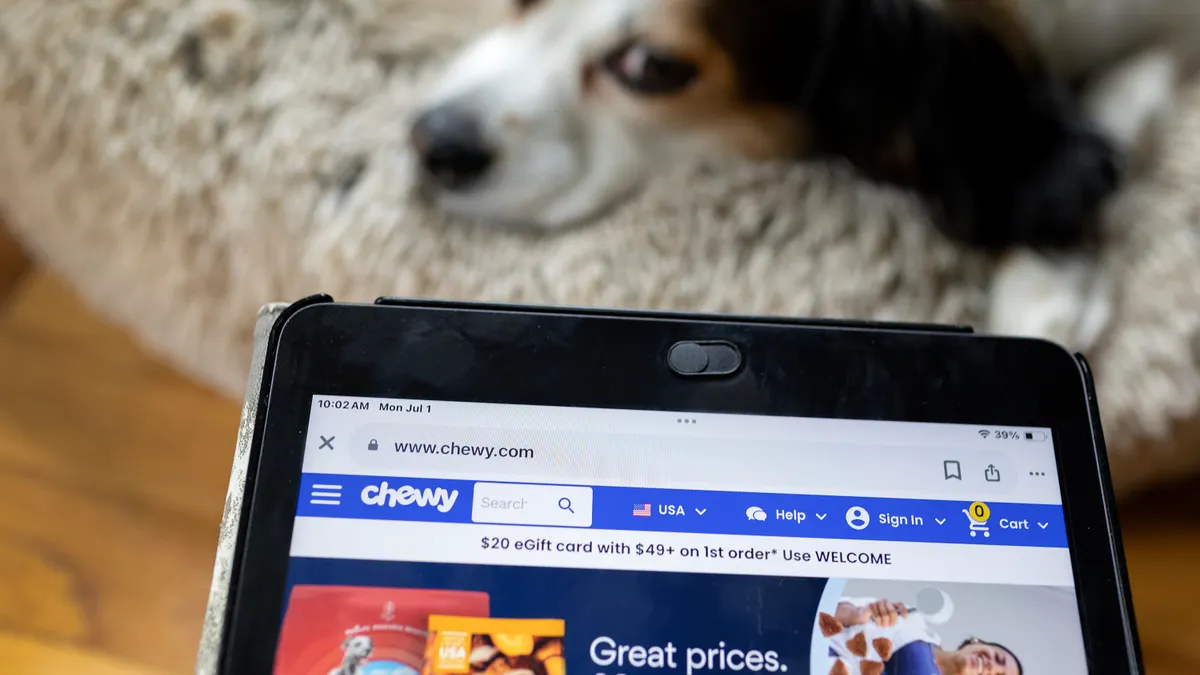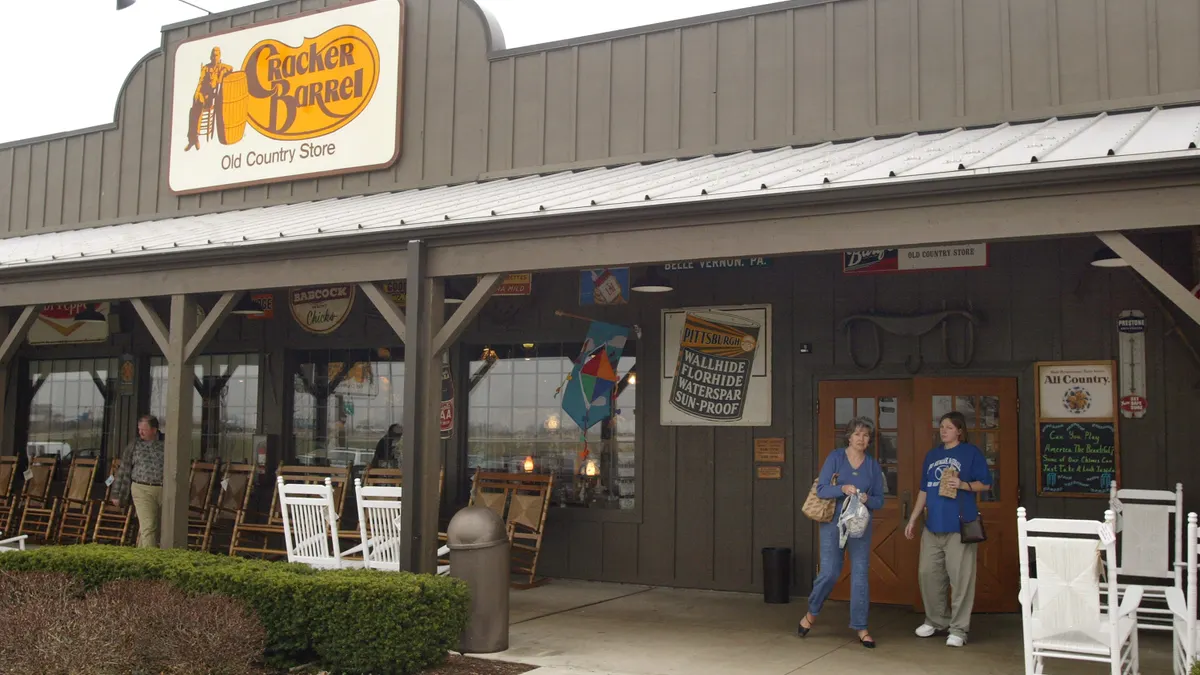After a spate of safety incidents within a two week period in March, United Airlines CEO Scott Kirby wrote a letter to customers. "Safety is our highest priority and is at the center of everything we do,” he promised.
While the safety incidents were relatively routine, according to experts, to alarmed customers already wary about flying, a wheel falling off and a missing panel were anything but normal. Adding to United’s woes, the Federal Aviation Administration in March said it would increase its oversight of United and review the airline’s processes.
Customer trust for airlines is a fragile thing, and any perception that flying is unsafe — warranted or not — starts to fray that conviction. It also harms the entire industry should customers shy away from flying.
United did not respond to CX Dive’s specific questions, but its CEO’s letter offers a glimpse into its efforts to maintain customers' faith.
United isn’t alone. Boeing’s safety issues have cast a shadow on the entire airline industry. United, however, has been the unlucky carrier to come under the public’s magnifying glass, according to Katy Nastro, a travel expert at Going.
“People don't realize that dozens of incidents and mechanical issues and engine problems and the whatnot happen multiple times a day on flights all over the world, not just in the States,” Nastro said. “But do we hear about it all the time? No.”
When the door plug on Alaska Airlines’ Boeing 737 Max 9 came off mid flight, it raised alarm bells. “Airlines are in the spotlight because of this one incident,” Nastro said.
The public wants reassurance that the plane they fly on is structurally sound and that they will be safe. Boeing’s door plug blowing out followed crashes of two of its planes in 2018 and 2019.
“Understandably, the Boeing incidents have spooked some travelers,” said Ben Mutzabaugh, a managing editor at The Points Guy. “A lot of things that are happening are now getting a lot of extra scrutiny. And United had the bad fortune of having many of these things all happen in a row.”
Though United is in the hot seat, all airlines should be taking note.
“Given the mess of Boeing and how that has impacted air travel right now, I think this is something all airlines will have to contend with for the time being,” Mutzabaugh said.
It’s worth remembering U.S. air travel is very safe.
“The irony is this comes against the backdrop of the safest period of aviation that, statistically, we've had in the modern era — ever,” Mutzabaugh said.
How safety incidents impact customers
Such safety incidents — and the attention paid to them — alarm customers.
“It's very easy to break down trust, and it's very hard to build it back up again,” said Judy Weader, principal analyst at Forrester.
Fortunately for United, most of this breakdown in trust has been directed at Boeing.
In early March, prior to United’s string of safety incidents, the Morning Consult found that while customers’ trust in Boeing dipped dramatically, airlines remained unaffected. The polling firm suggested that the reputational damage was limited to Boeing because it was the air manufacturer.
Customer behavior has changed in relation to Boeing. Customers have begun looking at whether they are flying on a Boeing plane, with Kayak even changing its interface so customers can select the kind of plane that they are willing to fly on, Weader said.
Even after United’s string of safety incidents, consumer behavior for United has yet to change, according to experts in the airline industry.
“It's not changing behavior, that I have seen, in a meaningful way among the traveling public,” Mutzabaugh said. “Obviously, that's not something you want to let fray around the edges and deteriorate.”
These incidents appear to be a blip, according to Bruce Temkin, an experience management expert and former head of Qualtrics XM Institute. If a plane had crashed, airlines would see meaningful reaction from customers, but unless consumers feel directly associated with it, they usually don’t change their behavior.
“Consumer sentiment is so resilient, that to some degree, all they have to do is manage the way through a little bit of a blip and people forget,” Temkin said.
Reassuring customers
Whether the narrative is fair or unfair, it’s up to United to fix customer trust, according to Mutzabaugh.
“United seems like they're trying to get ahead of the narrative,” Mutzabaugh said.
In his letter to customers, Kirby reassured the public that safety was a top priority, that there were not some systemic problems; United was taking action to review and address such incidents. He highlighted the airline’s planned safety trainings and reiterated the airline’s commitment to uphold their trust.
“In the past few years, we've done a lot at United to build a new culture, improve our business and earn your trust. I'm confident that we'll learn the right lessons from these recent incidents and continue to run an operation that puts safety first and makes our employees and customers proud,” he wrote.
In another letter to employees provided by United, Sasha Johnson, VP of corporate safety, addressed the FAA’s increased presence and reiterated the importance of safety.
Showing commitment to safety is key to customer trust in any industry — not just airlines.
“If United Airlines looks like an airline that doesn't care about passenger safety, that's worse for them than any lack of trust that came from the event itself,” Temkin.
For companies thrust into the spotlight on such issues, it’s important to treat the situation for what it is. If the rate of safety incidents increase or become more severe, it’s important for a company to take substantive action and remind customers of the actions you’ve taken, Temkin said.
Time, too, is a factor.
“To gain back that trust, what they really need is a month of nothing happening,” Mutzabaugh said. “The best thing for United to get ahead of it is just to run a squeaky clean operation.”
And trust can rebound. Nastro points to Southwest as an example. After the airline’s meltdown over the 2022 winter holidays that canceled thousands of flights, many customers claimed they would never fly Southwest again.
“Has Southwest gone out of business, are they hurting in terms of people not flying with them, has there been this drastic shift of consumer behavior? No,” Nastro said. “There was for a certain period of time that distrust, but when it comes down to it, probably price is going to lead people back to carriers. And if Southwest has the cheapest price for the route that they're looking to take, they're OK with it. They're going to fly on them.”


